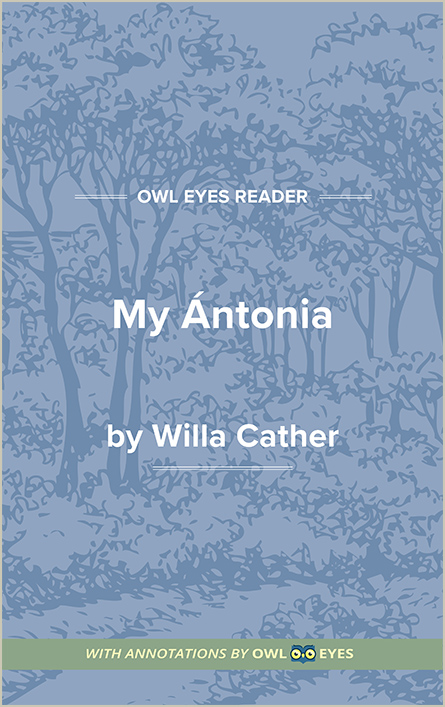Analysis Pages
Metaphor in My Ántonia
Metaphor Examples in My Ántonia:
Book I - Chapter VI
🔒"feeble minstrel..." See in text (Book I - Chapter VI)
Book III - Chapter I
🔒"“the bride of old Tithonus”..." See in text (Book III - Chapter I)
Book V - Chapter II
🔒"yokemate...." See in text (Book V - Chapter II)

